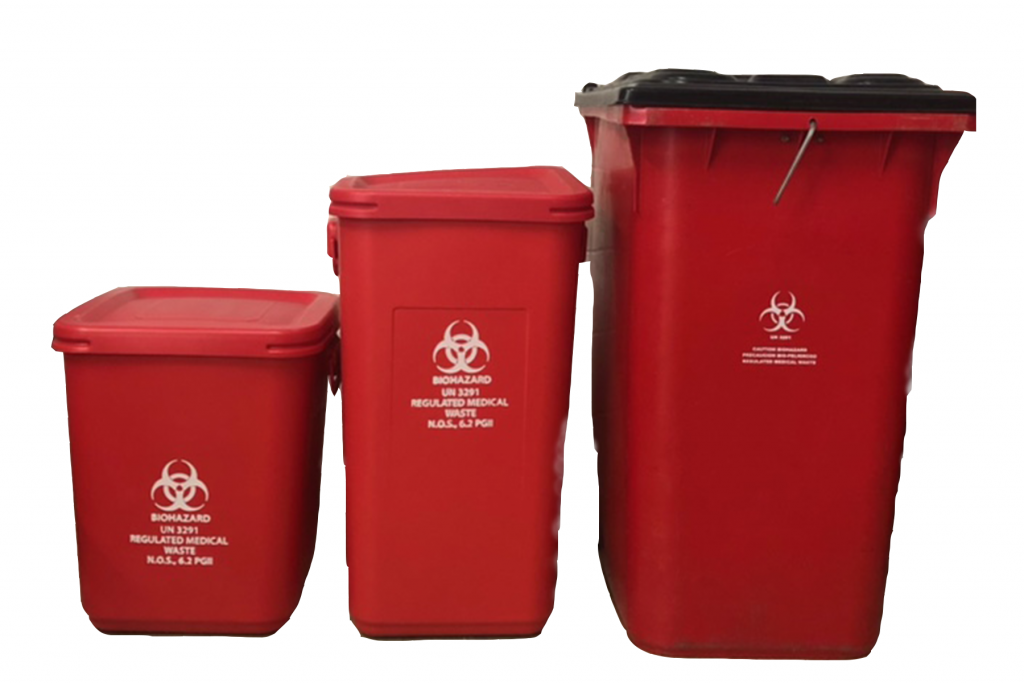Past Cleaning: Ensuring Safety And Security with Professional Medical Waste Removal
Past Cleaning: Ensuring Safety And Security with Professional Medical Waste Removal
Blog Article
Reliable and Eco-friendly Medical Garbage Disposal Solutions
In the ever-evolving field of healthcare, the concern of medical waste disposal remains a subject of paramount value. As health centers, clinics, and other medical care facilities aim to give quality individual treatment, they should likewise resolve the challenge of effectively and sensibly disposing of their waste.
Waste Segregation Practices
Effective waste segregation techniques are important to make sure the proper and risk-free disposal of medical waste. Clinical waste, that includes products contaminated with potentially infectious compounds, need to be taken care of in a means that minimizes the risk of damage to both public health and wellness and the atmosphere. Appropriate waste partition plays a crucial role in achieving this goal.
Waste segregation involves the separation of different sorts of waste based on their attributes and prospective dangers. This procedure makes sure that each kind of waste is treated and thrown away suitably (medical waste disposal services with WasteX). It begins at the point of generation, where healthcare centers ought to have designated containers and containers for different waste groups, such as sharps, contagious waste, pharmaceutical waste, and non-hazardous waste
By segregating clinical waste at the source, medical care suppliers can avoid cross-contamination and reduce the danger of exposure to contagious agents. This method also promotes the recycling and recovery of particular products. For instance, segregating and recycling clean plastics and glass lowers the demand for raw products and reduces the environmental impact of clinical garbage disposal.

Autoclaving and Sterilization Techniques
In order to guarantee the risk-free and correct disposal of clinical waste following effective waste partition practices, medical care facilities have to utilize autoclaving and sanitation methods. Autoclaving is an extensively utilized approach that utilizes high-pressure vapor to sanitize clinical waste.
This involves treating the waste with chemicals such as ethylene oxide or hydrogen peroxide, which kill microorganisms by disrupting their cellular structure. It is crucial to keep in mind that chemical sanitation calls for correct handling and disposal of the chemicals made use of, as they can be unsafe to human health and the environment if not managed properly.
On-Site Waste Treatment Solutions
Health care facilities have executed on-site waste treatment systems to deal with the disposal of medical waste in a efficient and safe manner. These systems provide a cost-effective and convenient solution for taking care of clinical waste produced within the facility. On-site waste treatment systems make use of numerous modern technologies to deal with and dispose of medical waste on-site, minimizing the demand for transport to off-site centers.
One commonly utilized on-site waste therapy system is the microwave modern technology. This technology makes use of microwave power to disinfect and disinfect clinical waste, lowering its quantity and rendering it risk-free for disposal. Another system is the chemical disinfection technology, which includes dealing with clinical waste with chemicals to eliminate microorganisms and reduce its hazardous nature. This approach is particularly efficient for fluid clinical waste.
On-site waste treatment systems offer a number of advantages. Firstly, they eliminate the danger of medical waste being mishandled throughout transportation, reducing the capacity for contamination and direct exposure to hazardous materials. Furthermore, these systems aid healthcare facilities follow waste management regulations by offering a reliable and hassle-free disposal technique. On-site treatment systems lower the general ecological effect of clinical waste by reducing transportation and the demand for landfill space.
Recycling and Repurposing Efforts
As health care centers pursue lasting waste monitoring practices, they are progressively checking out recycling and repurposing he has a good point campaigns as a means of lowering the ecological effect of clinical waste. Reusing and repurposing campaigns entail discovering ingenious methods to recycle or change clinical waste into new products or materials. This not only aids to minimize the quantity of waste that ends up in incinerators or landfills but also minimizes the consumption of basic materials and energy required for producing new products.
One example of recycling in the medical care sector is the reprocessing of single-use clinical tools. This not just lowers the amount of waste created however likewise saves health care centers substantial costs connected with purchasing new tools.
One more recycling effort entails the recycling of plastic containers, such as drug containers or syringe cases. These containers can be accumulated, sorted, and sent to recycling centers where they are refined, melted down, and transformed right into brand-new plastic products. This assists to conserve resources and lower the need for virgin plastic production.
In enhancement to recycling, repurposing initiatives include locating alternative uses for medical waste. Shredded paper waste from clinical documents or packaging materials can be repurposed as bedding material for animals or as insulation material. Likewise, natural waste such as food scraps from medical care centers can be composted and made use of as plant food in yards or farming areas.

Renewable Power Solutions
One reliable approach to mitigating the environmental impact of healthcare procedures entails applying eco-friendly power options. Health care facilities, such as healthcare facilities and centers, consume significant quantities of power for different purposes, consisting of lights, heating, cooling, and running clinical devices. By transitioning to renewable resource sources, these facilities can significantly decrease their carbon footprint and add to a much more sustainable future.

Carrying out renewable energy options in medical care centers not only decreases greenhouse gas exhausts yet also provides lasting price savings. While the initial investment in eco-friendly energy facilities might be higher, the lasting functional costs of renewable resource systems are substantially reduced contrasted to typical fossil fuel-based power resources. Additionally, renewable energy systems are reputable and can supply a secure and uninterrupted power supply, guaranteeing constant health care services even during power failures or emergencies.
Verdict
Finally, implementing efficient and eco-friendly clinical garbage disposal remedies is essential for maintaining a sustainable medical care system. By taking on waste partition methods, autoclaving and sterilization techniques, on-site waste therapy systems, reusing and repurposing efforts, and renewable resource solutions, healthcare facilities can dramatically reduce their environmental impact. These actions not just secure the environment but also advertise public health and wellness and security. For that reason, it is essential for medical care companies to prioritize the execution of these lasting this content waste disposal techniques.
It starts at the factor of generation, where healthcare facilities need to have designated containers and containers for various waste categories, such as sharps, contagious waste, pharmaceutical waste, and non-hazardous waste.
In order to ensure the proper and risk-free disposal of clinical waste adhering to effective waste segregation techniques, medical care facilities need to use autoclaving and sanitation techniques.Health care centers have actually implemented on-site waste treatment systems to attend to the disposal of clinical waste in a efficient and risk-free way. On-site waste therapy systems make use of various technologies to get rid of and deal with of clinical waste on-site, decreasing the need for transportation to off-site facilities.
As healthcare facilities aim for sustainable waste administration methods, they are significantly discovering recycling and repurposing campaigns as a method of lowering the ecological influence of clinical waste. - medical waste removal services
Report this page